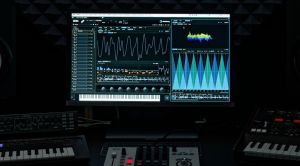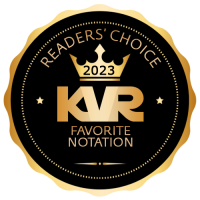Founded in 1984, Steinberg has been at the forefront of music and audio production technology for decades. From their early adoption of the MIDI standard to the creation of the revolutionary Virtual Studio Technology (VST) plugin format, Steinberg has continued to innovate over the years, growing its portfolio of software applications and hardware including studio staples such as their flagship digital audio workstations, Cubase Pro and Nuendo, Dorico notation software, HALion hybrid sampler/synth platform, WaveLab audio editing and mastering suite and more recently, their spectral editing suite SpectraLayers.
The last quarter of 2021 saw a major shift for the Steinberg software line up with the eventual retirement of their proprietary eLicenser system and the introduction of the new Steinberg Licensing system, which all Steinberg products will be migrated to. The new licensing system does away with the traditional hardware dongle in favour of a online activation system, providing more convenience and flexibility for users.
KVR spoke with Ben Timms, project lead on the new licensing system about the decisions behind the move and the future of the company.
Steinberg has long relied on the eLicenser system to protect products. Presumably, migrating to a new licensing model was a large undertaking. Could you explain the reasoning behind the shift?
Yes, it was possibly one of the broadest projects Steinberg has undertaken, affecting all our software products and requiring changes to a wide range of our business processes. The reason we undertook the challenge was that the technical foundation of the eLicenser system was creaking at the seams during product launches and wasn't well suited to our future direction of an identity-based licensing system. Furthermore, the USB dongle is really something we had to move on from in the 21st century for many reasons like the fact our creative users are often on the move on laptops, and reducing the environmental impact of manufacturing, shipping and end-of-life of an unnecessary electronic plastic-encased thing.
What advantages do you foresee for the new system for you as a company aside from the obvious advantages to the user of no longer having to rely on a hardware licensing system?
One immediate benefit is our increased flexibility to allow users to activate a single-user license on up to three computers. The strong link to our customers identity also safeguards their licenses in a way that the eLicenser didn't and paves the way for new possibilities with more flexible licensing models for schools, businesses and other institutions.
What does the current road map look like for other Steinberg products aside from those currently utilising the new system? Will instruments like HALion follow suit shortly too?
Yes, HALion will be the next major product to switch to Steinberg Licensing as the primary licensing system. The challenge with the instrument portfolio is providing as much backward compatibility as we can because it's impractical to rebuild all our previously released products to retrofit the new licensing system. We have a new mechanism for trading in existing eLicenser licenses for their equivalent (WaveLab 11.1 was the first product to make use of this within the lifecycle of a major version) and are looking at how feasible it would be to do the same for some of our back-catalogue of content.
Hardware licensing has historically been quite effective at preventing abuse and piracy. Do you foresee any challenges in this regard with respect to the new system?
This topic was discussed a lot when we decided to switch to a software-based licensing system and comes up again from time to time. However, by introducing new Steinberg Licensing, we were determined to move toward offering a more service-orientated user experience, where paying customers clearly benefit from our full range of services, such as tech support, even if that meant placing less emphasis on our anti-piracy measures. A progressive way of looking at this is that users who wouldn't have paid for software previously now have an entry point into our ecosystem and are more likely to become valued customers in the future.
It may be worth pointing out that the use of pirated software entails many risks, legally, ethically, and technically. I would like to believe that the savvy user will want to stay away from these dangers.
Other third-party and legacy products from developers have also made use of the eLicenser technology in the past. Will the eLicenser hardware still be sold for the foreseeable future, or are there plans to discontinue it entirely?
We're grateful to our eLicenser partners over the years for their business and have been in contact with anyone who licensed eLicenser to inform them of the sunsetting of the technology. Each vendor will decide for themselves as to how they wish to manage their licenses in the future. We have built up a good stock of hardware eLicensers but won't be placing any future orders for the chips that power them. We will continue to run the back-end eLicenser servers for as long as it's feasible to do so, but strongly encourage all our users to switch to products using our new licensing system where possible.
How has the new licensing system been received in general by your user base? Taking into account aspects such as your zero down time policy with the old hardware protection covering loss or damage of dongles, what effect has the move had on your ability to provide support to customers?
In general, our users are really pleased that they can start to move their licenses off the dongle and into a more flexible identity-based account. The fact that you can activate on three computers reduces the need for mechanisms like "zero down-time" and we're regularly reviewing our policies based on the feedback we get on the forums and our support channels.
Like any transition, there's often a peak of support requests as users get accustomed with the new system, but our support team are on-board with our vision of consolidating a range of our older systems to bring all the tools to help customers into a single view linked to the Steinberg ID.
Do you foresee an increase in popularity of Steinberg products, particularly since demo versions can now be offered without the need to purchase hardware?
One of the most pleasing moments of the entire project was when Matthias, the Product Marketing Manager for Cubase, could finally realise his vision of a dongle-less Cubase Pro trial. It's a huge step forward for us and makes complete sense in this digital-first age.
As more of our ecosystem of products make the transition to Steinberg Licensing and we build on that foundation to streamline the downloading, installing and activating our software, we can make our tools more easily accessible to everyone.
With company resources freed up from development of the new licensing system, can you give us any insight as to what the focus is for the development team in the near future?
While it's true that we're using a third-party vendor to run the server-side part of our licensing system, we've still invested heavily from our internal teams to package up the functions of the licensing platform in a way that makes sense for our applications, plug-ins and content. It's taken a huge effort across the business to build new tools for users, adapt our products, interface to our existing systems and business process. Looking forward, we have ambitions for adding refinement to the mechanisms underlying the new technology as well as providing greater flexibility for our customers, so further development will continue in the foreseeable future. Overall, the idea behind new Steinberg Licensing is to make it even easier for customers to access our creative tools in the way that makes sense to them both technically and financially.
Read more about Steinberg Licensing

Find Cubase Pro 13, Dorico Pro, HALion 7, SpectraLayers Pro 10 and WaveLab Pro in the KVR Marketplace








 Other Related News
Other Related News

